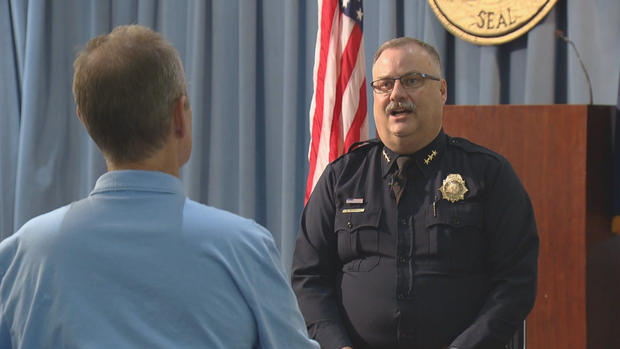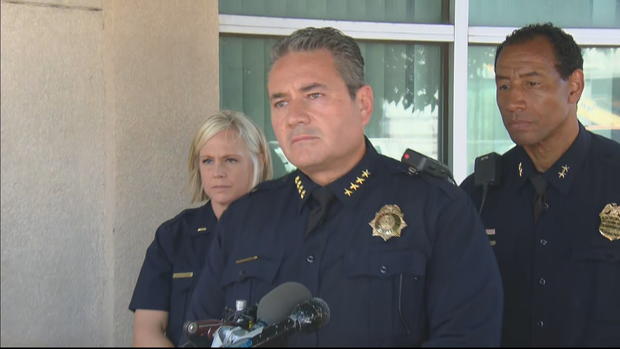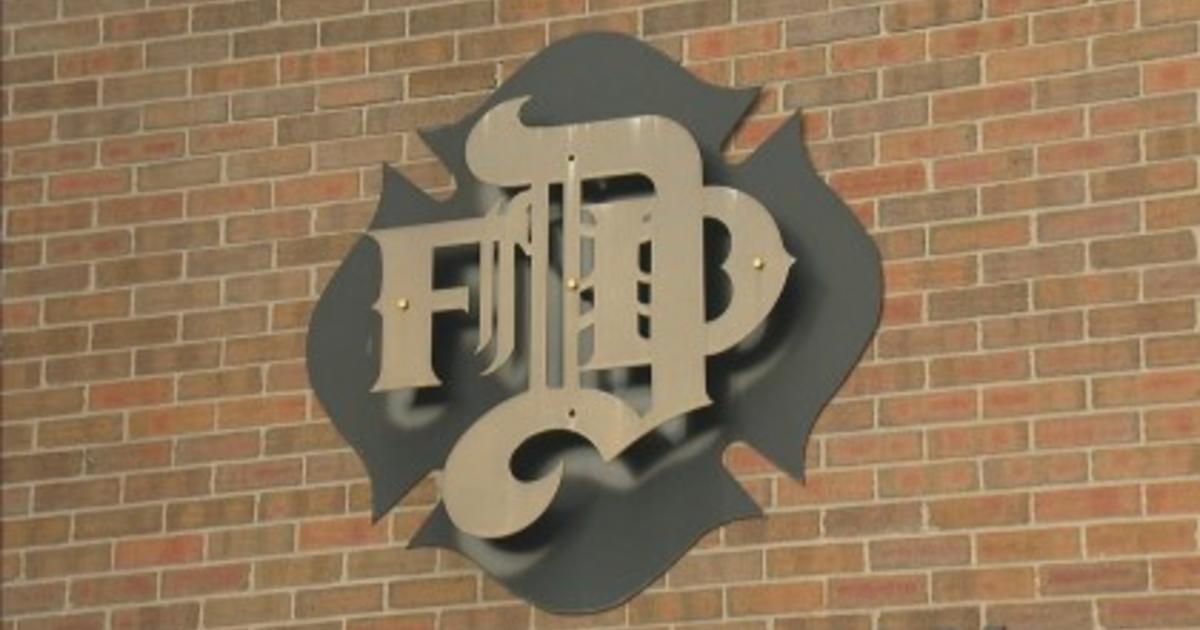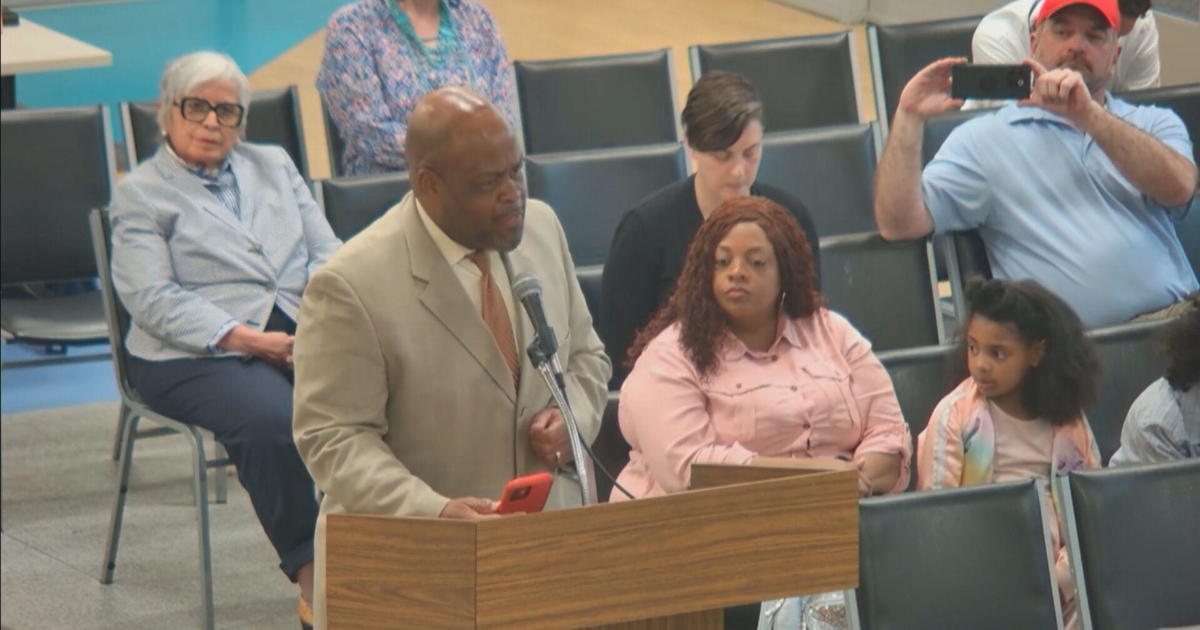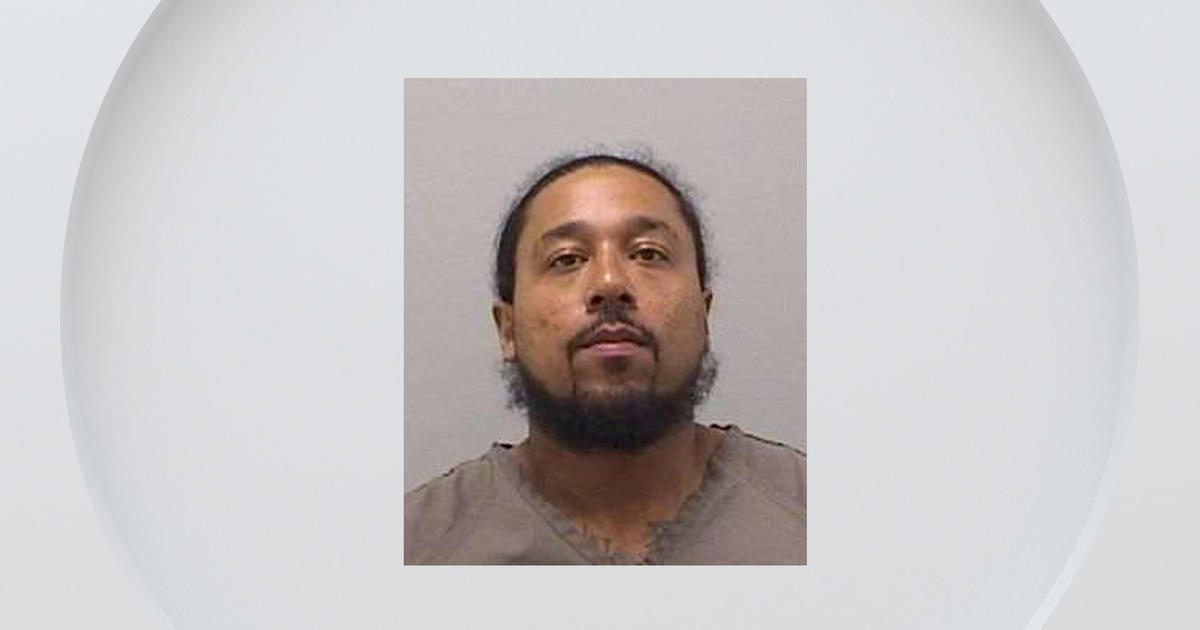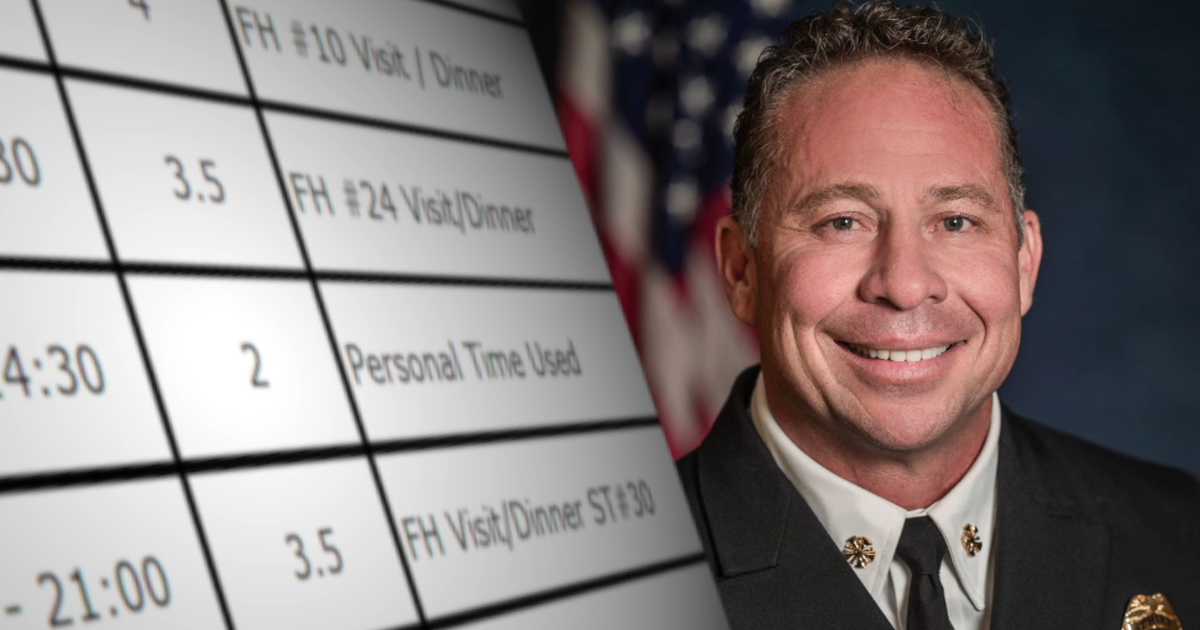Former Deputy Chief Cleared In CORA Case
By Brian Maass
DENVER (CBS4) - Former Denver Police Department Deputy Chief Matt Murray was cleared Monday of any departmental violations stemming from an accusation that he mishandled public records and violated department policies.
"As I have maintained since the beginning, I did not do any of the things I was accused of and there were a great number of inaccurate and irresponsible things said and then reported in the media about me", said Murray, following the decision not to charge him with any departmental violations. "We live in a time where unwarranted character assassination to achieve a political purpose seems generally accepted. Though extremely lengthy and exhaustive, this investigation definitively cleared me of any wrongdoing.
Murray is a now a Lieutenant with the police department.
The Denver District Attorney had previously declined to file criminal charges in the case. Monday's ruling, announced by Denver Police Chief Paul Pazen, indicated Murray did not violate department rules and regulations.
"I have concluded that a department policy violation was not sustained."
In the release from the Public Safety Department, officials said "There were a series of misunderstandings and miscommunications which led to inaccurate assumptions that the open records requests were being appropriately managed."
"There is insufficient evidence to support a conclusion that Lieutenant Murray knowingly or intentionally withheld documents from the public," Pazen said.
In his statement, Murray said he looked forward to moving past "this ordeal" and continuing his public service.
Read the City's Administrative Review summary here:
The Denver Police Department today announced the outcome of the administrative review involving former Deputy Chief Matthew Murray, whose current rank is lieutenant.
"After reviewing Lieutenant Murray's case and considering the totality of the circumstances, including evidence presented at his pre-disciplinary meeting, I have concluded that a department policy violation was not sustained," said Chief Paul Pazen.
A report from the Conduct Review Office (CRO) of the Denver Sheriff Department (DSD), including an addendum, can be found here. These documents are being made available to be consistent with the release of CRO documents on April 9, 2018, pertaining to former Chief of Police Robert White's involvement in this case.
Summary of Facts:
Former District Attorney Mitch Morrissey sent a letter dated May 17, 2016, to former Chief of Police Robert White, outlining concerns he had with how Lieutenant Murray – who was a Deputy Chief at the time – allegedly handled a criminal investigation of allegations against a Denver police officer and a female civilian. Chief White showed the letter to Lieutenant Murray, but told him to stay out of it. Chief White responded to Mr. Morrissey's letter on June 3, 2016.
On July 5, 2016, and again on October 27, 2016, the Denver Police Protective Association (PPA) sent separate open records request to the Department of Public Safety's records coordinator requesting documents related to the investigation in question, which the records coordinator responded to.
On December 28, 2016, the PPA sent the records coordinator another request for all electronic and written communication exchanges between the District Attorney and Chief White related to the investigation in question. Based on responses to an email the records coordinator sent to internal staff, a reply was sent on January 3, 2017, indicating there were no records responsive to the request.
That same day (January 3, 2017), the PPA sent a slightly modified request for the same records, and the following day the records coordinator again responded that there were no responsive records. A half hour later, the PPA made the same request to the District Attorney's (DA) Office. On January 9, 2017, the DA's Office responded to the PPA's request, providing the letter from Mr. Morrissey dated May 17, 2016, and Chief White's response dated June 3, 2016.
On January 27, 2017 (Friday), a local news reporter contacted the records coordinator and indicated he had a copy of both letters, which were sent to the records coordinator by the reporter's producer that afternoon. On January 30, 2017 (Monday), the records coordinator brought the letters to Chief White seeking an explanation for why they were not provided to her previously. His executive assistant then looked for the letters in the files she maintained and was able to produce a copy of both letters for the records coordinator, who provided them to the PPA that same day.
On February 22, 2017, the PPA filed a criminal complaint with the DA's Office alleging that Chief White and Lieutenant Murray engaged in a violation of open records law. The DA's Office opened an investigation on March 3, 2017.
On May 25, 2017, the DA's Office declined to file misdemeanor charges. Following the DA's announcement, the case was sent to an independent investigator hired to serve in the same fact gathering role as the Internal Affairs Division of the Denver Police Department (DPD). The Office of the Independent Monitor (OIM) actively monitored the investigation, which was advanced to DSD's CRO after the OIM agreed the investigation was thorough and complete.
As it relates to Lieutenant Murray, the review assessed three issues: if he bypassed protocol by contacting Chief Deputy District Attorney Adrienne Greene; if he made requests of the Crime Lab and the police department that violated policy; and if he mishandled the open records request.
The following factors support the findings that there were no sustained violations related to a communication protocol between the police department and the DA's Office, or related to requests made of the Crime Lab and the police department, as alleged by Mr. Morrissey:
- The investigation indicated that there was no on-call list or binding practice between DPD and the DA's Office relating to which Deputy District Attorneys were designated to be available on an on-call basis.
- The overwhelming majority of those involved in the criminal investigation confirmed that DA Greene was directing the investigation and evidence does not support that Lieutenant Murray made decisions related to the arrest of the female suspect as indicated in Mr. Morrissey's letter.
- All of the officers interviewed believed the allegations made by the complainant in the case and had no concerns at the time about the female suspect's arrest.
- The involved officers and DA Greene all confirmed that there was a tremendous amount of information on the complainant's phone, so the information that eventually exonerated the female suspect was not as readily available as Mr. Morrissey indicated.
As it relates to the open records request, the DSD's CRO recommended a sustained violation for "Conduct Prejudicial." However, per normal procedure, DSD-CRO recommendation was made prior to Lieutenant Murray's pre-disciplinary meeting. Meaning, the recommendation was made before Lieutenant Murray was afforded the opportunity to respond to the charges against him or to provide additional evidence for the Chief's consideration. Accordingly, an addendum to the DSD-CRO report was authored to incorporate information presented at Lieutenant Murray's pre-disciplinary meeting into the case analysis and findings.
The following factors support the findings that there were no sustained violations related to the handling of the open records request:
- Lieutenant Murray did not have the Morrissey letter or the Chief's response in his possession.
- There were a series of misunderstandings and miscommunications which led to inaccurate assumptions that the open records requests were being appropriately managed.
- Other high-ranking/command staff provided the same response as Lieutenant Murray to the same email from the records coordinator.
- When Chief White received the Morrissey letter, he showed it to Lieutenant Murray but told him to stay out of it and let the Chief respond. Lieutenant Murray indicated that directive prevented him from any involvement in the records request. The records coordinator who generally worked with Lieutenant Murray on Chief White's record requests was not made aware of these facts.
- The records coordinator typically receives several requests a day and generally advances them to a large group of recipients who may have responsive records or know how to locate them. This appeared to be an unwritten practice and many of the recipients did not respond.
- The records coordinator's general practice was to take no response as a response. This appeared to be an unwritten practice and it is not clear if Lieutenant Murray knew this was the case.
- The records coordinator's general practice was not to include administrative assistants in her emails for records requests due to the sometime sensitive nature of the information being requested. This appeared to be an unwritten practice and it is not clear if Lieutenant Murray knew that this was the case.
"Lieutenant Murray admitted to knowing about the letter from Mr. Morrissey and he could have done more to ensure it was disclosed in a timely manner," said Chief Pazen. "However, there is insufficient evidence to support a conclusion that Lieutenant Murray knowingly or intentionally withheld documents from the public. What is clear is the need to set expectations related to appropriate responses to open records requests, and we will work closely with the Executive Director of Safety's Office to meet that need."
After learning how the requests were mishandled, Mayor Michael B. Hancock asked Executive Director Troy Riggs to develop a rigorous, formal, open records request protocol for the Department of Public Safety that clearly sets forth process and communication responsibilities.
"The miscommunications and missteps in this case were avoidable," said Executive Director Riggs. "A formalized, transparent process will mitigate the potential for future missteps and I have already tasked a team with this important work. I have also initiated an evaluation of the case timeline to identify areas for improvement. I agree with what Mayor Hancock has said publicly – the amount of time it has taken to investigate and review this case is unacceptable. We must make substantive changes to the process to support timely outcomes and to honor our commitment to transparency and accountability."
CBS4 Investigator Brian Maass has been with the station more than 30 years uncovering waste, fraud and corruption. Follow him on Twitter @Briancbs4.
